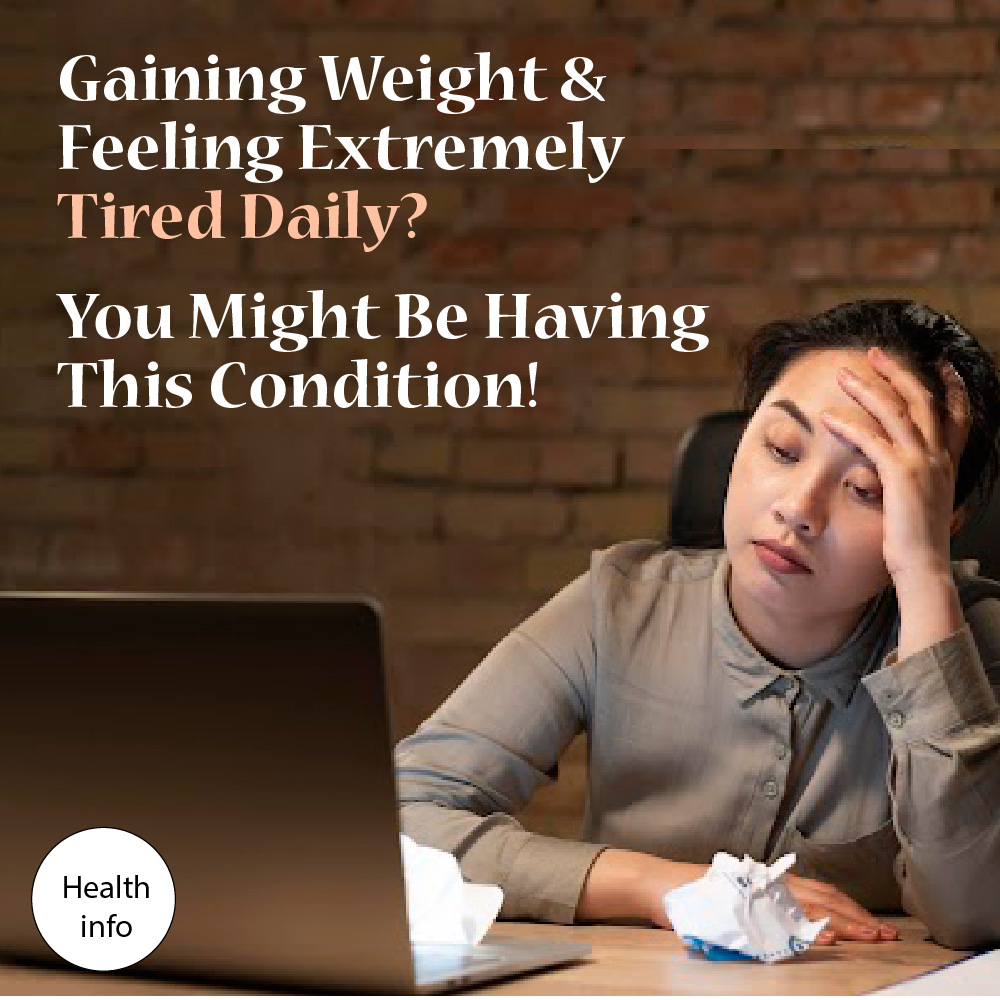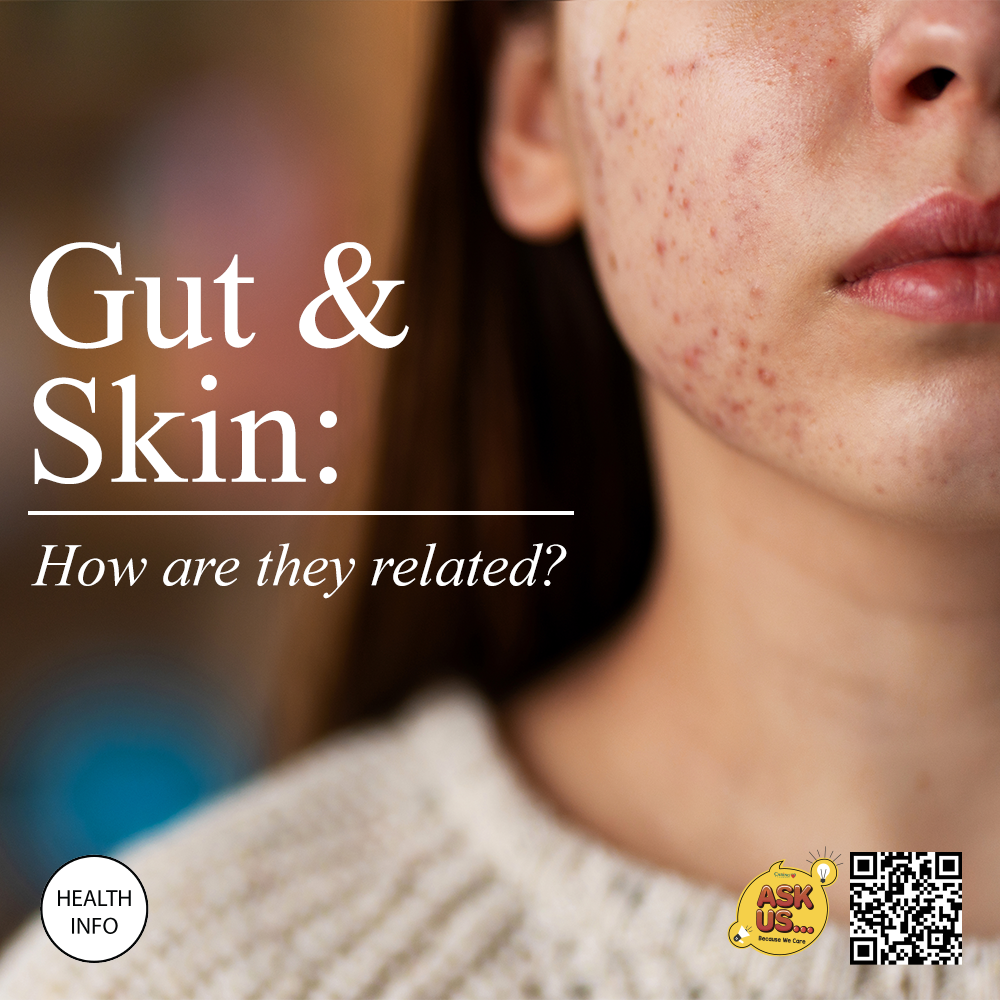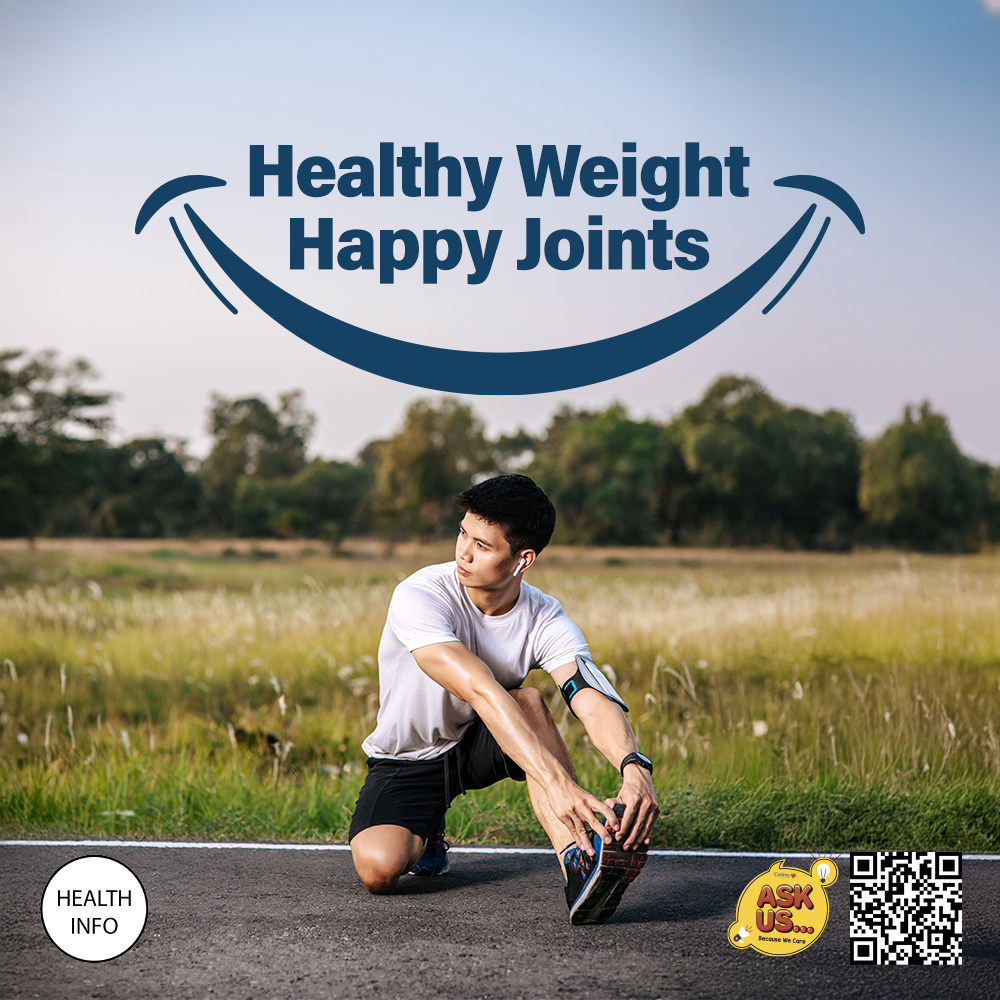- Home
- Health Center
- Health Info
- Gaining Weight & Feeling Extremely Tired Daily? You Might Be Having This Condition!
Sleep
Gaining Weight & Feeling Extremely Tired Daily? You Might Be Having This Condition!


Did you know? A condition known as sleep apnea, which results in excessive daytime sleepiness or snoring, also increases the risk of weight gain and obesity?
Apnea is a medical term that means the complete airway obstruction at the nose or mouth. Therefore, sleep apnea is a sleep disorder where breathing is interrupted repeatedly during sleep.1
We are often told that sleep is crucial for weight control. This is true as disturbed sleep is linked to a fall in the level of the satiety hormone, leptin. This results in an increased level of Ghrelin, the hunger hormone. Weight gain and obesity in turn worsens the condition of sleep apnea. The vicious cycle continues.2
We sleep for eight hours, which is one-third of 24 hours. This amounts to us sleeping one-third of our lifetime. This is why the quality of our sleep heavily impacts not only our weight, but also many aspects of our health. There are 84 known sleep disorders, and sleep apnea is the second most common after insomnia. Let’s understand more about Sleep Apnea.
Types of Sleep Apnea3:
1. Obstructive Sleep Apnea (OSA)3,4,5
It is the most common type of sleep apnea that occurs when the upper airway is blocked partially or fully but efforts to breathe still continue. This is due to the relaxing of the throat muscles. People who are obese, age 50 years and above, smoking, or drinking alcohol have a higher risk of developing sleep apnea.
2. Central Sleep Apnea (CSA)3,6
It is the second most common type of sleep apnea that occurs when there is a problem with the central nervous system. This happens when the signaling process of the brain in controlling breathing muscles is not working properly. Factors causing this are underlying medical conditions such as stroke, heart failure, and kidney disease.
3. Mixed Apnea3
It is the least common type of sleep apnea that occurs when the person has both OSA and CSA.
How to Know if You Have Sleep Apnea?
Well, there is no way to tell unless you get a diagnosis from a relevant healthcare professional. However, you may monitor the signs and symptoms to know when to seek medical help. Aside from the signs and symptoms, STOP-Bang Questionnaire is a good tool for you to identify if you are at risk for Obstructive Sleep Apnea.
Signs and Symptom of Sleep Apnea1,3
- Excessive daytime sleepiness (EDS)
- Snoring (often in OSA)
- Irregular breathing during sleep
- Episodes of stopped breathing during sleep
- Abrupt awakening accompanied by gasping or choking
- Poor concentration and memory
- Morning headaches
- Insomnia
STOP-Bang Questionnaire7,8
It’s an easy-to-use tool to help identify people who might have OSA. The questionnaire consists of eight simple yes-or-no questions based on the major risk factors of OSA.
- Snoring: Do you snore loudly enough to bother your partner?
- Tiredness: Do you feel daytime tiredness? Falling asleep during daily tasks?
- Observed Apnea: Does your partner notice that you stop breathing or gasp for air when you sleep?
- Pressure: Do you have high blood pressure?
- BMI: More than 35.
- Age: Older than 50.
- Neck Circumference: More than 16 inches.
- Gender: Male
Score 0 – 2 = low risk
Score 3 – 4 = intermediate risk
Score 5 – 8 = high risk
If you suspect that you may have sleep apnea, please consult your doctor immediately. If left untreated, it may lead to other health problems such as chronic daytime sleepiness and fatigue, cognitive impairment, and heart conditions like high blood pressure, heart attack and stroke.1
References:
- The Complete Sleep Apnea Guide. Sleep Academy. (Web Accessed August 2022), Web link: https://sleepacademy.org/2020/09/22/the-complete-sleep-apnea-guide/
- The Indian Express. 2022. Did you know you had sleep apnea?. [online] Available at: <https://indianexpress.com/article/lifestyle/health/did-you-know-you-had-sleep-apnea-7969651/> [Accessed 8 August 2022].
- Sleep Related Disorder Breathing. (2014). MyHEALTH Kementerian Kesihatan Malaysia Portal. (Web Accessed August 2022), Web link: http://www.myhealth.gov.my/en/sleep-related-disordered-breathing/
- Obstructive Sleep Apnea. (2012). MyHEALTH Kementerian Kesihatan Malaysia Portal. (Web Accessed August 2022), Web link: http://www.myhealth.gov.my/en/obstructive-sleep-apnoea-2/
- Obstructive Sleep Apnea In Adults. (2020). BMJ Best Practice. (Web Accessed August 2022), Web link: https://bestpractice.bmj.com/topics/en-gb/215
- Central Sleep Apnea. (2022). BMJ Best Practice. (Web Accessed August 2022), Web link: https://bestpractice.bmj.com/topics/en-gb/648
- STOP-Bang Score and Obstructive Sleep Apnea. (2022). Sleep Foundation. (Web Accessed August 2022), Web link: https://www.sleepfoundation.org/sleep-apnea/stop-bang-score
- STOP-Bang Questionnaire. (2017). Sleep Services Australia. (Web Accessed August 2022), Web link: https://www.sleepservices.com.au/stop-bang-questionnaire/
Latest Health Info
Gut and Skin: How They Are Related?
Did you know that your gut and skin are connected? The gut-skin axis is the relationship between the microorganisms in ...
Ladies, Let’s Bring Out The Beauty In You
Ladies, Let’s Bring Out The Beauty In You As women juggle the demands of work, family, and personal health, taking ...
Healthy Weight, Happy Joints
How Does Weight Affect Knee Health? The Link Between Pounds And Pain Osteoarthritis (OA) involves the degeneration of joints, which ...



